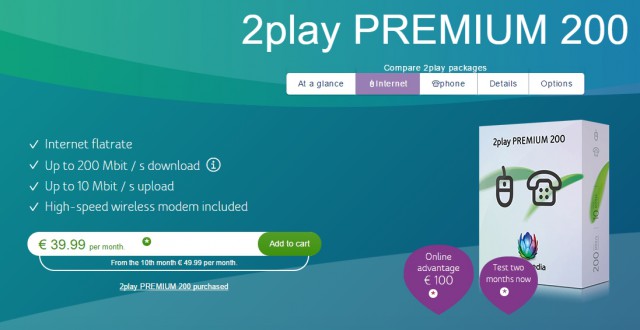
The “New and Improved” Don’t Care Bears
Rob Frieden has two words for Comcast customers getting scary letters and phone calls threatening to turn their legacy cable modems into paperweights: caveat emptor.
Frieden, author of Winning the Silicon Sweepstakes: Can the United States Compete in Global Telecommunications? knows enough to fend off the misinformation used to upsell customers away from the modems they own free and clear into Comcast’s rented $10/month alternative.
“Despite its commitment to improving its customer service, Comcast keeps writing and robocalling me with an offer I can refuse,” Frieden writes on his blog. “In a rather alarmist tone, Comcast wants subscribers to infer that their modem soon will no longer work.”
At issue are customers still using legacy DOCSIS 2.0 cable modems — one generation behind the current DOCSIS 3.0 modems Comcast wants customers to use. Frieden knows one day Comcast may decide to stop supporting DOCSIS 2.0, an older, less-capable cable broadband standard. Although that day is nowhere in view yet, it hasn’t stopped aggressive Comcast telemarketers from warning customers they “need upgraded equipment” that comes with a never-ending $10 a month rental fee.
“My Motorola DOCSIS 2.0 compliant modem works just fine and it cost me a princely $5 at a garage sale,” Frieden writes.

Frieden
As soon as Comcast finds out you are using an older modem you own, Frieden writes they may try to dissuade you from using it and push you towards their alternative.
“Comcast does not want you to know that the new rented modem will not provide any faster service unless you subscriber to a triple digit, high-end service tier,” Frieden adds.
Comcast’s official position is that DOCSIS 2.0 modems will work just fine with all Comcast Internet plans at speeds below 50Mbps. But they infer if you are not using a DOCSIS 3.0 modem (preferably theirs), “you won’t experience the blistering fast speeds now available.” That implies all Comcast customers with DOCSIS 2.0 modems will get less robust performance across the board, but in fact Comcast’s statement refers to the limitation DOCSIS 2.0 customers have upgrading to speeds they may never need.
After Comcast’s telemarketing machine has you convinced you need to upgrade to their perpetually profitable rented modem, they will also ask why not upgrade your router as well? Comcast suggests customers upgrade to at least a 802.11n model because older 802.11g routers only support up to 20Mbps.
“If you lease your modem, router, or gateway device from us, we’ll upgrade it at no extra charge,” Comcast claims, inferring the upgrade will come free. Except it isn’t. It just won’t cost you more than the $10 a month you are probably already paying.
Stop the Cap! readers regularly tell us Comcast often cuts corners and simply bills customers modem rental fees even for customer-owned equipment. Our reader Amanda is the latest victim and she is about fed up:
I took a look at my bill and for no reason Comcast suddenly started charging me $10 a month for a voice/data modem rental that I don’t have. Beware and check your bill thoroughly. Comcast sneaks charges on for services you don’t have. Absolutely hate this company. On top of the bogus $10 they raised all the rates so my bill went from $186 a month to $219 a month. I would never recommend Comcast to anyone. Horribly deceptive company. Oh and then there is the junk equipment that Comcast uses. I have had three X1 boxes replaced in a year. I’m thinking about going with U-Verse for TV and staying with Comcast for Internet.
Comcast’s “new and improved” customer service becomes especially hostile when customers like Amanda catch the company cheating, forcing her and others into lengthy investigations and appeals to get the bogus fees removed and earlier charges refunded:
So I talked with Comcast today and got nowhere. They basically don’t want my business after 18 years and are giving me a hard time about refunding me the charge for the modem. They said it will take at least 14 days for them to look into the issue with the modem being mine and not being leased from Comcast. I told them I want to cancel and they transferred me to a recording telling me how to send in my equipment via UPS. 18 years and they will not budge on changing my pricing without signing a two year contract! So after 40 minutes on the phone with them I am extremely mad and frustrated. Now I have to waste my time filing complaints with the Better Business Bureau and the attorney general. And even more time switching my services to another provider. It seems that Comcast has changed its tactics and now instead of trying to retain their customers they are saying go ahead and leave. And can only imagine the nightmare of returning all the equipment.

If you can’t prove your cable modem doesn’t belong to Comcast, they may conveniently bill you an unreturned equipment charge of $70, like one customer experienced in 2014.
 Comcast customers in Atlanta, Nashville, Chicago, Detroit, and Miami will be the first to get Comcast’s new DOCSIS 3.1 modems and faster Internet plans likely to accompany the introduction of the latest cable broadband standard.
Comcast customers in Atlanta, Nashville, Chicago, Detroit, and Miami will be the first to get Comcast’s new DOCSIS 3.1 modems and faster Internet plans likely to accompany the introduction of the latest cable broadband standard.

 Subscribe
Subscribe While Comcast, Cox, Suddenlink, and a handful of other cable companies play games with usage caps and expensive broadband, Germany is getting some massive broadband speed improvements with no data caps, speed throttling, or rate increases.
While Comcast, Cox, Suddenlink, and a handful of other cable companies play games with usage caps and expensive broadband, Germany is getting some massive broadband speed improvements with no data caps, speed throttling, or rate increases.



 Montréal cable subscribers will soon be able to buy gigabit broadband speeds from Vidéotron after a successful pilot project demonstrated the cable company’s existing DOCSIS 3.0 network was up to the task.
Montréal cable subscribers will soon be able to buy gigabit broadband speeds from Vidéotron after a successful pilot project demonstrated the cable company’s existing DOCSIS 3.0 network was up to the task. Midcontinent Communications customers will be able to get gigabit broadband speeds… by the end of 2017.
Midcontinent Communications customers will be able to get gigabit broadband speeds… by the end of 2017.
